Season 2
After finishing this second season in which we released two episodes for each of our four Critical Pathways – one with policy and research experts and one with lived experience and practice experts – we’ve decided to share a bonus episode that may serve as a bridge between this season and the future of our Strong Families, Thriving Children, Connected Communities initiative and this podcast series. If you remember back to our first episode of this season, my team at the Institute shared the vision of our Critical Pathways strategy. In Gabe McGaughey’s words, “There are several high quality initiatives focused on prevention policy, and we don’t want to replicate or compete with any of those efforts, but rather connect and elevate them. And in doing so we hope we can accelerate the impact of a collective network.”
As we enter further into the Critical Pathways, broaden our awareness and understanding of the impactful work and systems change efforts happening across our state, and deepen our relationships with those doing that work, we hope to elevate the practices, policies, relationships and mental model shifts that are strengthening families and reducing child welfare involvement in their lives.
As I started this season talking with my Institute team at Children’s, I thought it would be fitting to finish this season in conversation with my Institute colleague at UW-Milwaukee, Josh Mersky, to further elevate one of those promising approaches. In our conversation, we discuss the research Josh has done with our partners from across the state on the impacts of Family Resource Centers and other universal programs that promote family protective factors and social connectedness. We also explore his journey studying resilience and protective factors and what he has learned about the impact of child neglect and, conversely, how social connectedness may reduce the risk of neglect or mitigate its effects.
Dr. Josh Mersky is a founding director of the Institute for Child and Family Well-Being and a professor at the University of Wisconsin-Milwaukee’s Helen Bader School of Social Welfare. Josh’s research interests include child maltreatment and other adverse experiences that undermine health and well-being over the life course. He is dedicated to working with local and state partners to translate evidence into real-world solutions that improve outcomes for vulnerable children and families.
Josh applies his expertise to the design, application, evaluation, and dissemination of effective practices, programs, and policies through Institute projects that include the Strong and Stable Families project that he will discuss today. I encourage you to check out our Institute for Child and Family Well-being website to learn more about those projects.
In Wisconsin, 72,942 reports were made to Child Protective Services last year alone. To make sense of that, 200 children are being reported every day because someone believes they are being abused or neglected. Every single day. To put that in further perspective, that comes out to about 1 out of every 17 children in our state being subject to a child protective services report. Imagine having someone call a government agency to report that your child appears to be unsafe. How might that feel as a parent? Now, of those nearly 73,000 reports, 51,000 of them (or 7 out of every 10) is screened out, meaning that they don’t rise to the level of maltreatment that would require an assessment to be completed by CPS. And finally, just over 3,000 children were separated last year from their parents from those nearly 73,000 initial reports. At the same time this is happening, we have nearly 40,000 non-profits statewide that support our children, families and communities, yet families too often need support or services that are unknown to them or hard to access. So how might we work smarter, not harder, to elevate solutions to ensure all families can access the help they need when they need it? How might we lead with compassion and curiosity to build bridges between service providers, community organizations, and the families we serve, so we can create a more equitable, collaborative, and impactful support network rather than a reporting network? I invited Julie Ahnen, Laura Glaub and Marc Seidl to have this conversation today to explore these questions as they have been on a journey of confronting the challenges of mandated reporting and mistrust of our systems.
In episode 2 of this season with Liz Weaver and Mark Cabaj, they centered the people closest to the problems that we are trying to solve. Liz talked about how their community change efforts driven by Collective Impact frameworks require that there is a balance of participants at the table, meaning that there are as many people with lived experience as professionals and government officials. Mark summoned the Polish constitution from centuries ago that brought us the words that have become synonymous with community voice – “Nothing about us, without us.”
Over the past many years, we have seen a movement within our family serving systems – from substance abuse to mental health to child welfare – to include those impacted most by those systems in the planning and decision-making processes. Organizations like Think of Us have been founded by and for people that have been impacted by the child welfare system. In Wisconsin, Bregetta Wilson, our guest from season 1, leads a team of Parent Leaders at our Department for Children and Families that has advised changes to our state’s child welfare policies and procedures. At Children’s Wisconsin, we have a Parent Advocate, Esmeralda Martinez, who we will be talking with today about her own lived experience that led to the child welfare system, and how that experience informs her role and the support she provides to parents that are living a similar experience to her own.
So how might we support and advance these movements to meet the promise of “Nothing about us, without us”? How might we learn from those with lived experience about what overloads families in the first place, so that we might support them before child welfare and family separation is needed? How might we create the power balance that Liz Weaver talked about where those with lived experience have the influence to make meaningful changes to the decisions and systems that impact them the most? And lastly, how might we support our lived experience partners so that we don’t overload them or cause harm?
I invited Esmeralda Martinez to answer these questions today through her experience and expertise.
20 years ago, I found myself jumping into a dry canal on a hot day in Santa Cruz de la Sierra, Bolivia in an attempt to introduce myself to a group of kids who called the canal home. While my Spanish was in good form after two years designing programs for a nonprofit in Spain. My early attempts at communicating with youth who had been abused and neglected and were now living in the streets had gotten off to a rocky start. I learned quickly that my Spanish and even my ability to articulate what the kids had experienced that led them to the streets didn’t create the opening to enter into their community. So I stood awkwardly on the outside, respectfully observed from a distance and occasionally got an “hola, hermano”, as they assumed I was from the church. I was not.
Days later, a boy known as Choco asked if I wanted to play checkers with his friends. I accepted. I sat under the bridge, introduced myself and asked them their names. Before they even finished introducing themselves, I started my pitch as to why they should leave the streets. Nothing surprising here. The streets are full of danger like traffickers, drugs and disease. I even shared the data that made it clear that they would likely die of tuberculosis or addiction, or end up in jail before their 20th birthday. The kids didn’t flinch. Instead, Choco put his hand on my arm and said, “but the street is my family. They protect me.” In one of the more consequential decisions in my career, I fought my urge to argue with him, and again cite all the evidence as to why leaving the streets would be better for him in his future. Instead, I listened. What I learned in that moment would serve as the foundation of my work for the next two years in Bolivia, and in some ways for the past 20.
Our trusted social connections inform how we see ourselves in our world. If I wanted these boys to leave their only trusted social connections in the streets, I had to build trust with them. And kids see right through you, if you aren’t speaking their language, if you aren’t sitting in their reality with them. So I kept showing up, I kept listening. And soon I spoke their language. I understood that they didn’t want to hear about the dangers of the streets, but the safety of our community and new friendships, the opportunity of school, and most importantly, the promise that I would be there if things got hard. In that single social connection between me and that boy, the conditions that would in many ways dictate his future were changed.
In a way it was that experience and many like it over the years that inspired this podcast series. I wondered, how might we bring the language and expertise of policy, research and systems experts into the same space is the language and expertise of those most impacted by the policies, services and resources the former talk about? It’s my attempt at translating. I hope that there have been moments in these first two seasons that have helped translate the complexity of systems into how they impact the complex lives of real people.
That is my traditionally long-winded way of introducing today’s episode. And what I hope you will reflect on as you listen to two different conversations that we have weaved together for you. As you already heard in the opening clip, Diana Maya speaks Spanish. I chose very intentionally to give the same space to Diana’s voice as I do to all my guests, which means that she will tell her story without interruption. That also means that if you have to dust off your high school Spanish, you may find yourself in the shoes of the boys in Bolivia when I spouted projected outcomes or that of a mother sitting at a table with a half dozen professionals citing statutes right after her child has been separated from her. In the end, you won’t miss anything. I share in English what Diana says after she’s done, but I do hope that it’s an opportunity to reflect on how important shared language and social connection are to building trust, authentic engagement and the opportunity for meaningful change.
I have spent weeks thinking about this episode, what I have learned from listening to Diana and Jessika stories, the power of their connections with Amy and Ayesha and how we can change lives by listening to understand what someone has been through who they are, and who they might become if someone believes in them.
Social Connectedness came alive in these conversations. And one powerful moment I watched as Amy was brought to tears while listening to Diana tell her story. While Amy doesn’t speak Spanish, it was clear that she understood what Diana was experiencing and sharing in that moment. I want to thank that Diana Maya and Jessika Harleston, for sharing their stories with me. I also want to thank my colleagues here at Children’s Wisconsin, Amy Baldus, Ayesha Teague and Micaela Conlon-Bue, who have become part of Diana and Jessika stories do their amazing work and care. I encourage you to learn more about them on our podcast website.
On January 8th, we mark the 60th anniversary of President Lyndon Johnson’s War on Poverty. In his State of the Union remarks, he called poverty a national disgrace and described it as a societal failure. He stated, “The cause may lie deeper in our failure to give our fellow citizens a fair chance to develop their own capacities, in a lack of education and training, in a lack of medical care and housing, in a lack of decent communities in which to live and bring up their children.” He signed into law the Economic Opportunity Act later that year, which would create job training programs, Head Start early childhood education, and a domestic volunteer program – now known as Americorps. It would also attempt to combat racial discrimination, which had marginalized people of color from fair participation in our politics and economy. It would later inspire cash assistance and tax credits that have shown to reduce poverty such as TANF, the Earned Income and Child Tax Credits.
Policies, such as the Economic Opportunity Act, that strengthen family economic stability can go a long way toward reducing childhood adversity and supporting the relationships that help children thrive.
While progress has been made in Johnson’s War on Poverty, it’s clear that there are still many battles before us as child and family poverty have not been eradicated. As Mark Cabaj discussed in our second episode, we often solve one problem only to expose or create another in this infinite game. For example, with our economic safety net, many families find themselves on the benefits cliff as they make too much to be eligible for housing vouchers or cash assistance, but too little to pay for what they need for their families.
So how might we raise the floor on family economic stability, while lowering the ceiling on the cost of living? How might we better support overloaded families so that they may achieve economic stability?
I invited Jessika Harlston to have this conversation today to share her lived experience and her role as a Financial Employability Planner to explore these questions.
Jessika Harlston is a mother of 3 boys and a Financial Career Planner and Case Manager for individuals and families. In Overloaded, she shares her experience of becoming socially isolated that led to child welfare involvement, and then her powerful story of reconnection with her family and support system. Jessika shares that “so many people look at me as this woman who has it all; when in reality, I am just like everyone else. I cry like everyone else, I struggle like everyone else, and of course, I smile like everyone else.”
Earlier this year, Jermaine Reed hosted the Color of Child Welfare conference as he has since 2010, which included a keynote by Dorothy Roberts, the author of Torn Apart, from which Bregetta Wilson read in our first season. Ms. Roberts wrote an article last year titled, “Why End Mandated Reporting”, in which she makes this foundational statement:
“By federal edict, every state must identify people who work in professions that put them in contact with children – such as teachers, health care providers, social services staff, and day care workers – and require them by law to report suspected child abuse and neglect to government authorities.” Consequently, she states, “Poor and low-income families are more likely to come in contact with professionals who are mandated to report child maltreatment. Receiving social services, relying on welfare benefits, living in public housing or shelters, and using public clinics all subject parents to an extra layer of surveillance by government workers who are quick to report when they suspect maltreatment or a family’s needs for services.” As we shared in season 1, this system has led to the deeply troubling reality in which 53% of all Black children and 1 in 3 of all children in the United States are subject to a child maltreatment investigation.
How does our current system of mandated reporting discourage overloaded families from seeking the help that they really need due to fear of ending up in the child welfare system? How does it create moral dilemmas for the many helpers in our community – teachers, social workers, doctors and nurses – who feel compelled to report a family under the weight of the potential consequences if they don’t?
So how might we transform our mandated reporting system into community support and collaboration that lifts overloaded families up and over their challenges? How might we confront the biases that influence reporters’ decisions as to who to report and who to support? And how might we improve our systems and service coordination so that our helpers know who can help and how to connect them to the families that need them when they need them?
I invited Jermaine to have this conversation today to share his expertise and explore these questions. As an added bonus, Jermaine and I begin this conversation discussing his journey as a child welfare professional, which covers some of the topics we explored in the Workforce Inclusion and Innovation discussion we had last week with Tim Grove.
In 2021, amid a global pandemic, a national reckoning on racial justice, and human and environmental devastation from the opioid epidemic, gun violence, and climate disasters, Harvard Public Health published a feature called “The Age of Trauma”. In that feature, they describe these times as “the age of syndemics”, a theory that first emerged in the 1990s during the AIDS epidemic as a way to examine how social ills and medical illnesses collide. In other words, we are again living in a time when those who are most adversely impacted by social ills such as poverty, systemic racism, and trauma, are also most vulnerable to diseases such as COVID.
These syndemic times are devastating for our most overloaded families, which in turn puts even greater stress on the people who are serving and supporting them. In our mental health, child welfare, and family well-being systems, vicarious trauma, moral injury, and burnout have become more prevalent during the past few years as professionals were exposed to not only human suffering but also the impossible decisions as to whose suffering took priority when their resources limited their ability to meet everyone’s need.
These past few years have also exposed the lack of diversity and representation in our workforce, which led to a movement of Diversity, Equity, and Inclusion in and across organizations and systems.
In the face of these challenging times, how might we begin to address the long-standing underlying root causes of these syndemic times that overload families and, in turn, burn out our workforce? How might we create a workforce that is authentically representative of our communities, while also nurturing a work environment that honors and elevates the lived experience of our workforce?
I invited Tim Grove to help answer these questions by sharing his expertise and understanding of the impacts of trauma and moral injury within the child welfare system, and workforce culture through Diversity, Equity, and Inclusion and trauma-informed care frameworks.
On May 3rd, 2023, Dr. Vivek Murthy, the U.S. Surgeon General, released a national plan to fight against our country’s “loneliness epidemic”. In his opening statement, he wrote:
“When I first took office as Surgeon General in 2014, I didn’t view loneliness as a public health concern. But that was before I embarked on a cross-country listening tour, where I heard stories from my fellow Americans that surprised me. People began to tell me they felt isolated, invisible, and insignificant. Even when they couldn’t put their finger on the word “lonely,” time and time again, people of all ages and socioeconomic backgrounds would tell me, “I have to shoulder all of life’s burdens by myself,” or “if I disappear tomorrow, no one will even notice.”
It was a lightbulb moment for me: social disconnection was far more common than I had realized.”
The research supports what Dr. Murthy heard, and the consequences of loneliness and social isolation are troubling.
Recently, about one-in-two adults in America reported experiencing loneliness, nearly 1 in 4 Wisconsinites report that they only sometimes or never get the social and emotional support they need; and even more troubling, caregivers of children, especially mothers and single parents, are more likely to experience feelings of loneliness. And that was before COVID-19 cut off so many of us from our support systems, exacerbating loneliness and isolation. Loneliness is far more than just a bad feeling—it is associated with a greater risk of cardiovascular disease, dementia, stroke, depression, anxiety, and premature death. The mortality impact of being socially disconnected is similar to that caused by smoking up to 15 cigarettes a day.
While these realities are cause for concern, I believe the fact that we are talking about social isolation and its harms is the first important step in confronting it, in shifting the narrative towards how we build and strengthen social connectedness. So how might we build a movement that brings people and organizations together to destigmatize loneliness and change our cultural and policy response to it?
I invited Linda Hall and Rebecca Murray to help answer that question by sharing their expertise on the underlying root causes of social isolation; the positive impacts of social connectedness on child development and family prosperity; and the promising and proven practices and policies that effectively strengthen the social connectedness of families that may be at risk of child neglect and family separation. Their work leading Wisconsin’s Office of Children’s Mental Health and Child Abuse and Neglect Prevention Board has prioritized social connectedness for children and families through research and advocacy, and the promotion of practices and frameworks such as Five for Families, the Five Categories of Social Connectedness for Youth, and Family Resource Centers.
While Wisconsin defines neglect as the failure, refusal, or inability to care for a child for reasons other than poverty, we can’t ignore the fact that 85% of families investigated by our child welfare system live below 200% of the federal poverty line. Earlier this year, Chapin Hall at the University of Chicago published a report on the impacts of poverty on child neglect and abuse. The message was clear. Income supports to families with low incomes, like those provided through the Temporary Assistance for Needy Families (TANF) program, reduce the risk of child maltreatment and the child welfare system involvement that results from it.
What if we were to think about programs like TANF that we commonly think of as anti-poverty programs as child maltreatment prevention programs that keep families together? How might we build partnerships across systems that empower the economic stability of overloaded families? How might we follow the evidence, even if it contradicts how we have always done things, so that we may change the conditions that overload families and make them vulnerable to our most intrusive systems?
Clare Anderson from Chapin Hall joins the podcast to share her expertise on the root causes and role of poverty and their intersection with child neglect, and the practices and policies that effectively address the economic needs of overloaded families that may reduce family separation for reasons of neglect.
In 2019, The New York Times published an opinion column entitled “Winning the War on Poverty. The Canadians are doing it, we’re not.” In the column, they note that Canada reduced its official poverty rate by at least 20% from 2015 to 2017. This accomplishment brought its poverty rate to its lowest in recorded history. My guests today, Liz Weaver and Mark Cabaj were part of this societal transformation. Their leadership and use of methodologies such as Collective Impact and Field Catalyst brought people living in poverty together with business, nonprofit, and government partners in hundreds of communities across Canada. By building authentic relationships, each community would learn from one another and build a shared understanding of what was at the root of their poverty.
So how might we learn from Canada’s transformation so that we might empower communities to overcome poverty or child neglect, and build wealth and child and family well-being? I invited Liz and Mark to have this conversation today to share their wisdom and why these approaches are so vital to community and systems change, how they should be and shouldn’t be used, and what they look like in real life so that we may create transformational change for our children, families and our communities.
Since you last joined us in season one, our team at the Institute for Child and Family Well-being has been busy learning from the experts that you heard here, community changemakers from across our state, and the latest evidence from lots of reading. Through that learning, we developed four critical pathways that will serve as roadmaps to help us focus our efforts, foster deeper relationships across systems and communities and clarify shared goals.
As a small team, we know that we can’t achieve our goal of reducing family separations for reasons of neglect across the state of Wisconsin on our own. So we hope through this podcast, convenings, and ongoing shared learning that we can serve as a catalyst of change. As my team at the Institute has learned this past year and a half, the evidence may take us and you to new places that lead to better outcomes for families. In this first episode, I talk with my team to introduce this season of the podcast so that they can share with us how we got here, where we’re going, and what you can anticipate hearing from our experts in season two.
In season 2 of Overloaded: Understanding Neglect, we will be confronting complex challenges like poverty, social isolation, and systemic racism that overload families as we explore our Strong Families, Thriving Children, Connected Communities’ four Critical Pathways, our roadmaps for discovering and developing innovative solutions to these wicked problems. Through the first year of our Strong Families initiative, which included season 1 of this podcast series, we were able to align the insights and experiences of those who know these issues best with the evidence that has shown promise in advancing meaningful solutions. This collaborative effort identified four critical pathways – Economic Stability, Social Connectedness, Community Collaboration, and Workforce Inclusion and Innovation – that will shape the future of our initiative that aspires to reduce family separations for reasons of neglect.
Join me, Luke Waldo, as I explore these Critical Pathways with research and policy experts Clare Anderson from Chapin Hall at the University of Chicago, Mark Cabaj of From Here 2 There, Tim Grove of Wellpoint Care Network, Linda Hall of Wisconsin’s Office of Children’s Mental Health, my Institute colleague Josh Mersky of the University of Wisconsin-Milwaukee, Rebecca Murray of Wisconsin’s Child Abuse and Neglect Prevention Board, Jermaine Reed of Fresh Start Family Services, Liz Weaver of the Tamarack Institute. Additionally, we will shine a light on these Critical Pathways through the lived experience experts of many of my close colleagues at Children’s Wisconsin’s child welfare and child maltreatment prevention programs and the caregivers with whom they have worked closely.
Season 1
In today’s bonus episode, we brought together some of our Overloaded: Understanding Neglect experts to thank them and celebrate our collective effort that led to this podcast series. But before we went out to celebrate, we sat down to discuss two topics that have become even more relevant, more top of mind for many of us. First, we explored the Legislation and Policy that have been passed, renewed or begun implementation this year. Then, we discussed the challenges and opportunities that we face with our Workforce within our child welfare and maltreatment prevention systems.
In today’s episode, our last in this series, we will be looking back at our previous seven episodes in an effort to elevate our key lessons learned to present a blueprint towards our ultimate goal of supporting overloaded families and reducing family separations for reasons of neglect. We will be looking at them through the lens of the systems change drivers that we have explored over the past many episodes, by looking at the impact of mental models – our beliefs and biases that influence our behavior – and the relationships and power dynamics that connect or divide us in our communities and systems, and how they influence the important policies, practices and allocation of funding and resources that support our systems change strategies and efforts.
In today’s episode, we will be looking at how we might move further upstream from our current child welfare system, with the intent of revealing current strategies, efforts and opportunities to prevent adversity from occurring for children and families. As we discussed in our previous episodes, we will be looking at the impact of mental models – our beliefs and biases that influence our behavior – and the relationships and power dynamics that connect or divide us in our communities and systems, and how they influence the important policies, practices and allocation of funding and resources that support our prevention strategies and efforts.
As you will hear today, there are many prevention strategies that currently exist that we believe, if employed more frequently and effectively, can dramatically lessen the overload that too many families in our communities are carrying. In turn, they can be the nurturing, responsive parents that their children need and deserve; and we can reduce family separations for reasons of neglect.
Today’s episode intends to provide a framework of systems drivers along with some concrete examples of how we might move our child welfare system towards a child and family well-being system. We hope that it provides an initial framework along with some inspiration as to how each of us has the power to influence systems change through the seemingly small acts of compassion and challenging our own biases. Through those small acts real change begins, especially in a system and society where historical inequities and trauma have deep roots that persist today.
How might we challenge those inequities in our policies and practices within our own organizations and communities? How might we share power, leadership and decision-making with those that we serve? And how might we learn from the policies and practices that have allowed families to fall or be separated before we actively supported them? Join us today to hear our experts share their experience with those questions.
In our first four episodes, we explored neglect, three of its underlying root causes in the forms of trauma, systemic oppression, and poverty, and their compounding challenges like housing instability, mental illness, and addiction that further overload families with stress, and can lead to child welfare involvement and family separation. Moving forward, we will shift our focus from the challenges that overloaded families experience to the challenges and opportunities that our complex systems, organizations, and communities face as we aspire to reduce family separations for reasons of neglect.
To begin this shift, we will explore the child welfare system over a two-part episode, beginning today in part 1 as we look more closely at how the system is designed and functions, how policies, which are often created by those furthest away from the most affected communities, dictate practice and resources, and how we are failing overloaded families by not effectively addressing the underlying root causes of neglect that we explored in our first few episodes.
Children thrive when they have regular interactions with responsive, caring adults. Families experiencing significant stressors related to financial insecurity, housing instability, or the impact of systemic racism and trauma can be overloaded with stress, interrupting those interactions. Over time, and without adequate supports, overloaded families can become vulnerable to adverse experiences, ranging from toxic levels of stress to involvement in the child welfare system, and even family separation for reasons of neglect. How might we support and empower overloaded families, so that they may overcome these challenges? How might we see families for their strengths and potential rather than as defined by their darkest moments?
Poverty, like neglect, is a constellation of complex challenges. We are too often investigating families for child maltreatment because other systems are failing. When this happens, a family that may have been experiencing temporary financial insecurity becomes more vulnerable to compounding factors such as homelessness and mounting stress. It’s in these moments that a family becomes vulnerable to a child welfare investigation and potential family separation. So how might we begin to address financial insecurity before it becomes poverty? How might we support families experiencing poverty before it leads to child neglect?
In Wisconsin, family separations disproportionately impact Children of Color. In 2020, Children of Color made up about 31% of Wisconsin’s child population, but 56% of the foster care population in out-of-home care. Nationally, 53% of Black children will experience a Child Protective Services’ investigation before their 18th birthday. In this episode, we explore these disparities and impacts of systemic oppression on children and families, and how these experiences intersect with trauma.
How do we define neglect? How is neglect interpreted and operationalized by our child welfare system, and how many children and families are separated because of it? What are the underlying root causes of neglect that overload caregivers with stress? In this first episode, host Luke Waldo explores these questions and the complexity of neglect with our research and policy, child welfare and child maltreatment prevention, and lived experience experts.
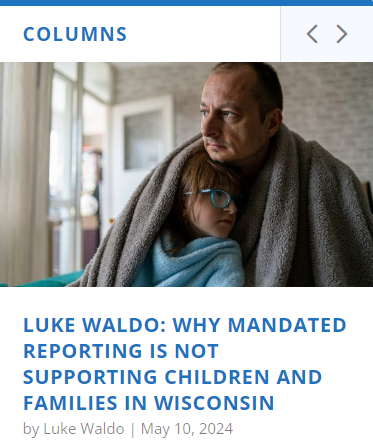




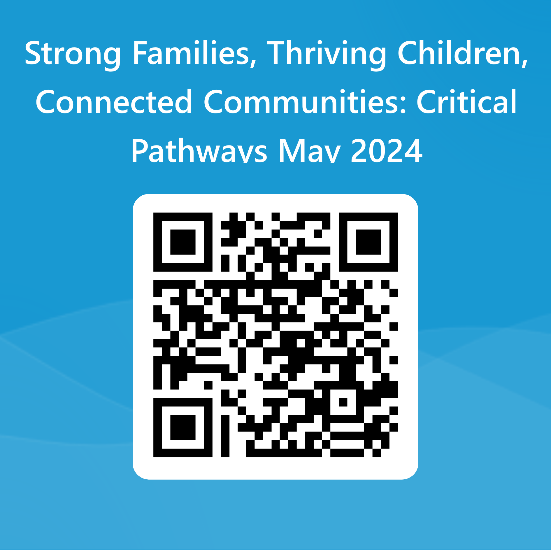
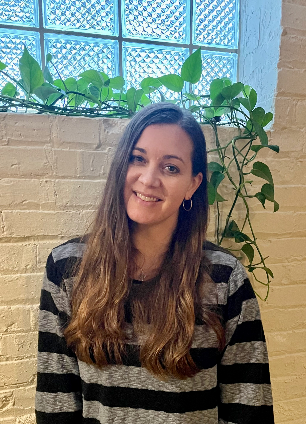


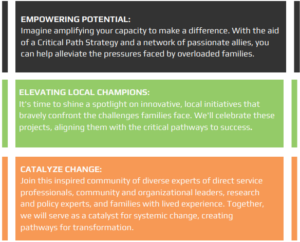


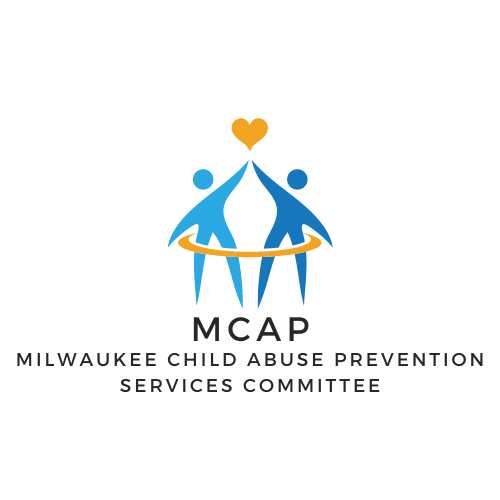

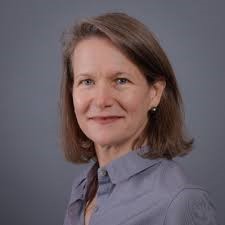
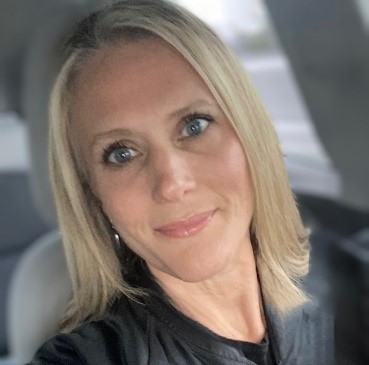



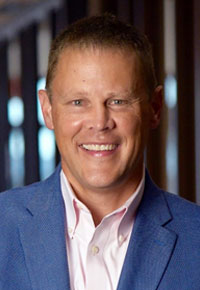
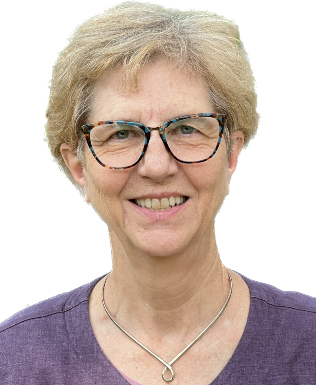




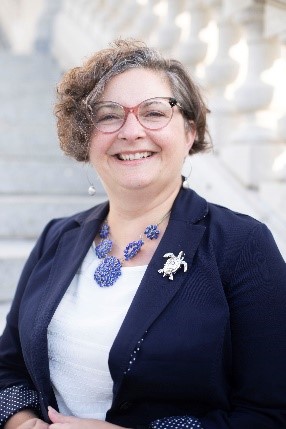



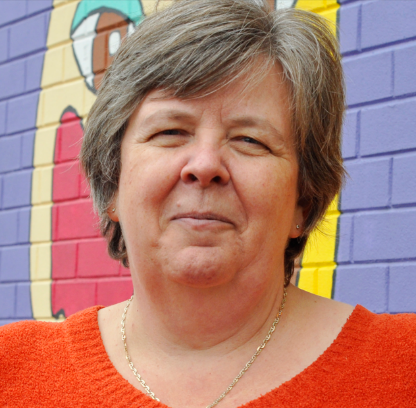



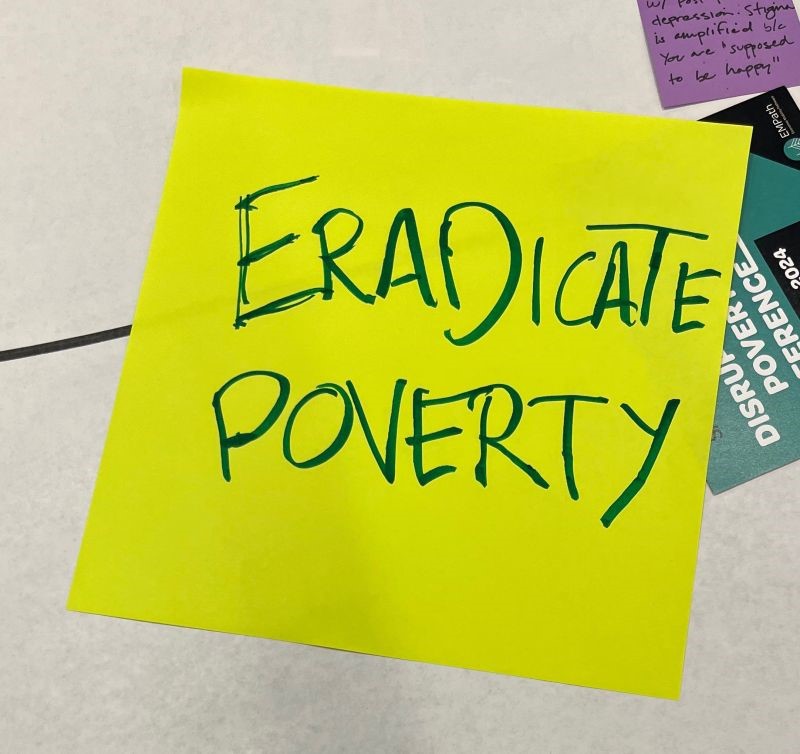

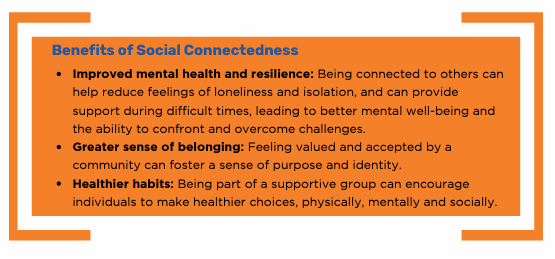

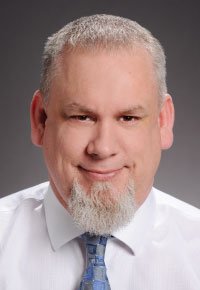

 Tim Grove
Tim Grove Ashlee Jackson
Ashlee Jackson Jennifer Jones
Jennifer Jones Hannah Kirk
Hannah Kirk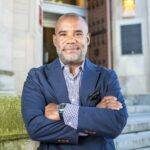 Bryan Samuels
Bryan Samuels Dr. Kristen Slack
Dr. Kristen Slack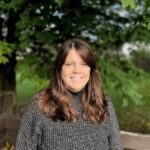 Theresa Swiechowski
Theresa Swiechowski Soua Thao
Soua Thao Bregetta Wilson
Bregetta Wilson Julie Woodbury
Julie Woodbury